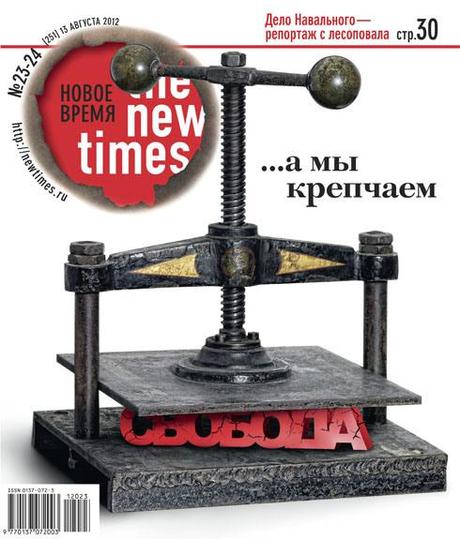In Russian culture there is supposed to be lull regarding news during the holiday period. In fact, some publications even go on “holiday” during the season between the end of the year and just past Christmas on 07 January. Somebody forgot to remind the news-makers it would seem.
The funny: there is always an aspect of news in Russia that lends itself to hilarity. The country just cannot help itself apparently. So, it was not that big of a surprise when last week the interior ministry declared that miniskirts were no longer appropriate for female police officers. It is true that miniskirts have never been part of the officially approved uniform, however there is something about seeing a young female officer in a very short skirt, while wearing high heels, that just makes you want to be chased–and caught.
Interior Ministry officials have watched, literally we can only assume, as hemlines have become shorter and shorter on the skirts of female officers. Heels have inched higher, too. Having seen enough, officials have decided to lower those hemlines and heels, back to something more representative of a respectable police force. Commanders across Russia have been issued guidelines on daily uniform inspections. To keep it equal, male officers will no longer be allowed to wear sleeveless shirts in summer–something that had become somewhat of a trend in more recent years.
The odd: Tourism from the West is not exactly on the upswing as of late, due to sanctions and political spats between Russia and the West. However, the folk in Moscow are eternal optimists and just in time for the extended holiday period, the city has introduced a couple hundred “tourist police” on the streets. Think of them as bi-lingual tour guides with a map of the city in one hand and a pair of handcuffs in the other.
They can speak English (at least to a degree), help tourists navigate around the city, and then lock them up at night if the tourists misbehave. What a country!
The vanishing: the brain and talent appears to continue unabated. The latest high profile person to flee the country is Pavel Durov, the founder of Vkontake (known as “vk”), Russia’s answer to Facebook. Durov says that VK had been under pressure to reveal personal information to the Kremlin regarding VK users from Ukraine. That came not long after President Putin had declared that the Internet had been invented as a tool for the CIA. We should note that Mr. Putin makes only scant use of the Internet.
Last week Durov as fired as CEO of the company he had founded and the Kremlin-friendly Igor Sechin, CEO of Russian oil giant Rosneft, was handed the reins. Perhaps Sechin was getting bored at his current job, oil sales are not exactly on the upswing as of late. The Kremlin has made no secret of its mistrust of the evil Internet.

Durov told technology newsite Techcrunch that he planned to launch another mobile social network. Outside of Russia, naturally. He told the publication that, “I am out of Russia and have no plans to go back.”

To make sure that Radio Echo tones down the independent rhetoric, the government media watchdog Roskomnadzor slapped the station with a warning after Echo interviewed journalists who detailed direct Russian involvement in the war in Eastern Ukraine. After the broadcast, Roskomnadzor notified the station of the warning, saying that Radio Echo had broadcast “information justifying war crimes.”
Roskomnadzor warnings carry weight–two warnings allows the government to shut down a broadcast facility.
Even more on the continuing crackdown on a free press: Yevgenia Albats, editor-in-chief of The New Times, one of the few remaining print publications independent of the Kremlin, has been accused of disobeying traffic police. Although authorities could not come up with specifics of her disobedience, the editor has been charged. She claims to have been pulled over in a routine traffic stop and handed over the proper paperwork when asked. The officers then charged Albats with disobeying police orders. If convicted she faces up to 15 days in jail.
Already the government-controlled television NTV, the channel that often conducts smear campaigns on those whom the Kremlin has labeled as enemies, has broadcast that the editor was leaving a “party at a Georgian restaurant” in Moscow. The state of relations between the Kremlin and the former Soviet republic of Georgia has remained tense since the Russian invasion of Georgia in 2008.

The Albats case will be heard in court this Tuesday, 30 December.
The very bad: Most Western readers probably have little to no knowledge of the oil spill in the Black Sea last week. Why? Because the Russian media is not exactly racing to cover the story. Last week a large Russian oil pipeline burst a pipeline outside the town of Tuapse. Russian oil giant Rosneft was constructing pipeline in the area for use by Transneft, Russia’s major pipeline transporter.
The local government has declared a state of emergency, and whether intended or not, the declaration has hampered efforts by independent media and world scientific experts to inspect the damage. Severe winter weather has hampered clean-up efforts.
Some sources claim that Satellite imagery indicates between 500 to 700 tons of oil were spilled into the Black Sea. If true, that would be almost 100 times more oil than Russian government sources have estimated.

